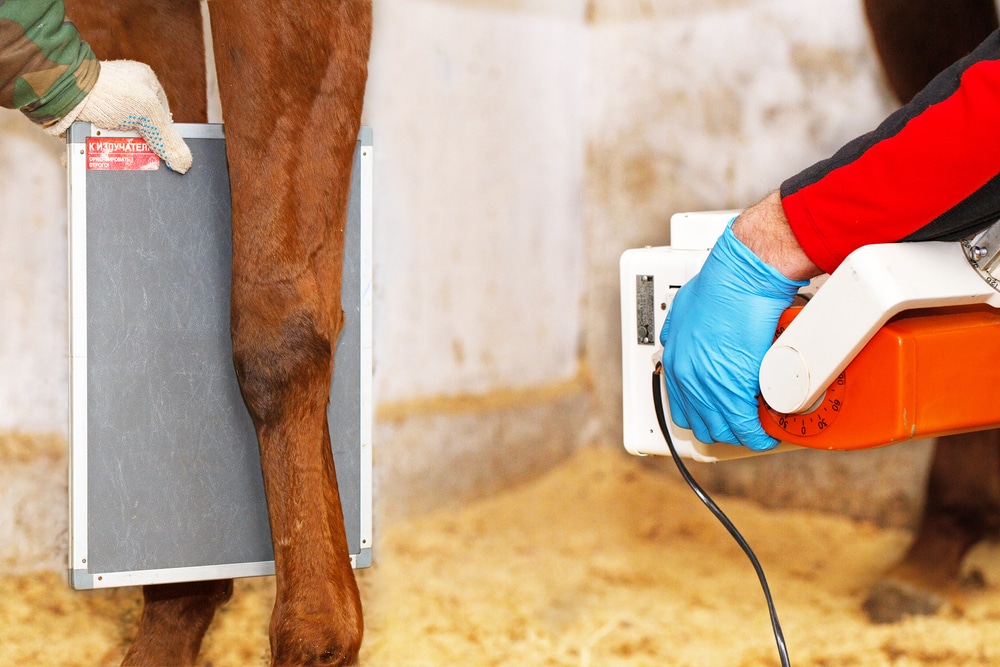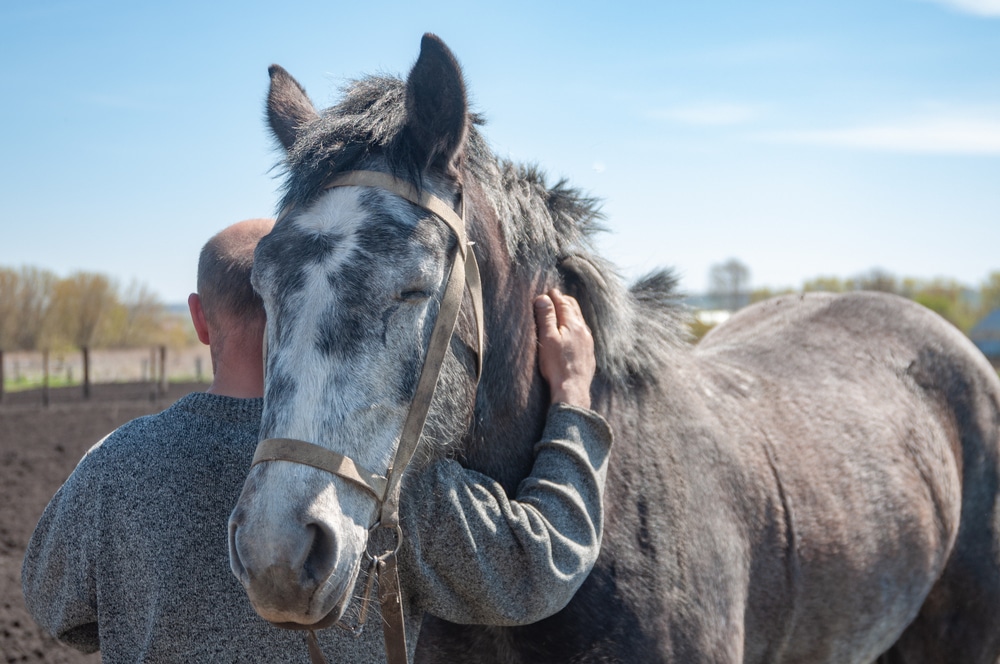A pre-purchase examination provides information about a horse’s health and soundness on the day of the exam and helps a potential buyer make an educated decision about whether the investment is appropriate for their needs and goals. Our Bear Creek Large Animal Clinic team explains what to expect during an equine pre-purchase examination.
Before the equine pre-purchase examination
No horse is perfect, and a pre-purchase examination is not for passing or failing a horse, but to determine if the horse’s health and soundness are adequate for the work level you expect. Questions you should consider before the equine pre-purchase examination include:
- What do you intend to use the horse for?
- How long do you expect the horse to perform at that level?
- What issues are you willing to accept and manage?
- What issues do you consider deal-breakers?
Equine pre-purchase examination medical and performance history
The first stage of the pre-purchase examination is obtaining a detailed account of the horse’s medical and performance history to determine how these issues may affect the horse’s future health or performance. Specific questions typically include:
- Has the horse had any health issues that required veterinary intervention?
- Does the horse have any chronic medical conditions?
- Has the horse experienced any lameness issues, past or present?
- Is the horse on any medications or supplements and, if so, why?
- What is the horse’s nutrition program?
- What is the horse’s vaccination and deworming history?
- Does the horse have any undesirable traits, such as cribbing or weaving?
Equine pre-purchase examination physical examination
The next part of the equine pre-purchase examination involves a detailed and systematic physical examination of the horse that includes:
- Body condition score (BCS) — Our team will evaluate the horse’s BCS on a 1-to-9 scale to determine their overall body condition.
- Vital signs — We will check the horse’s vitals, including respiratory and heart rates, temperature, and gum appearance.
- Auscultation — Our team will listen with a stethoscope to the horse’s heart and lungs to detect issues such as heart murmurs or arrhythmias and lung sound abnormalities.
- Ophthalmic examination — Using an ophthalmoscope, we will examine the horse’s eyes for abnormalities such as cataracts, evidence of uveitis, and corpora nigra cysts.
- Oral examination — Our team will inspect the horse’s mouth to estimate their age and identify dental problems, such as parrot mouth, missing teeth, and periodontal disease.
- Dermatological evaluation — We will evaluate the horse’s skin and coat, looking for abnormalities, such as skin disease and scars, that could indicate previous surgeries or injuries.
- Palpation — Our team will palpate the horse’s neck, back, and limbs to identify heat, swelling, and any painful response to pressure.
- Neurological examination — We will assess the horse’s neurological status by evaluating their cranial nerves and coordination.
Equine pre-purchase examination movement evaluation and flexion tests
The horse’s soundness is critical to their ability to perform, regardless of their intended use, and we will carefully evaluate how the horse moves as they walk, trot, and canter in a straight line and on a circle. This allows us to identify issues such as:
- Hoof interference
- Paddling or plating
- Fluidity in transitions
- Asymmetry in movement of the back or pelvis
- Short stridedness
- Lameness
- Respiratory issues
In addition, we will flex each joint, maintaining pressure for a short period, and then watch them trot away in hand, which allows us to identify joint discomfort after stress is applied.
Equine pre-purchase diagnostic

Depending on the horse’s intended use and the soundness evaluation results, we may recommend X-rays of specific areas, such as the front feet, fetlocks, stifles, and hocks, to look for conditions such as arthritis, bone spurs, navicular disease, and laminitis.
A comprehensive screening blood panel, Coggins test, and endoscopy to check for upper respiratory issues may also be considered.
Purchasing a horse is a significant investment, and an equine pre-purchase examination can help you make an informed decision about the horse’s suitability for your equestrian goals. Contact our Bear Creek Large Animal Clinic team if you have a horse you are considering buying.








Leave A Comment